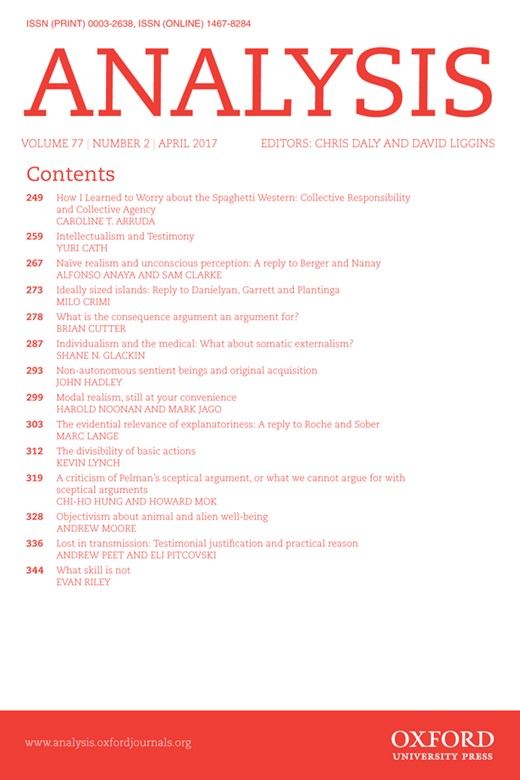-
Views
-
Cite
Cite
Andrew Peet, Eli Pitcovski, Lost in transmission: Testimonial justification and practical reason, Analysis, Volume 77, Issue 2, April 2017, Pages 336–344, https://doi.org/10.1093/analys/anx055
Close - Share Icon Share
Abstract
Transmission views of testimony hold that a speaker's knowledge or justification can become the audience's knowledge or justification. We argue that transmission views are incompatible with the hypothesis that one's epistemic state, together with one's practical circumstances, determines what actions are rationally permissible for an agent. We argue that there are cases where, if the speaker's epistemic state were transmitted to the audience, then the audience would be warranted in acting in particular ways. Yet, the audience in these cases is not so warranted, as their strength of justification does not come close to the speaker's.




